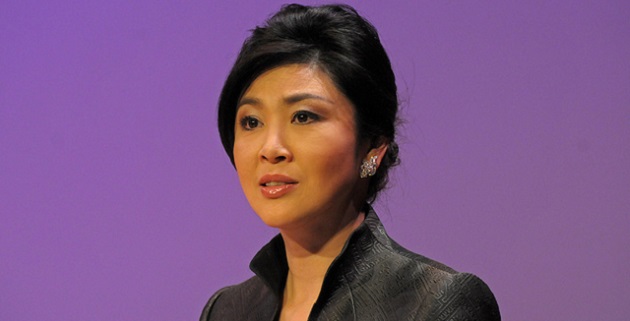Thailand's Constitutional Coup

Thailand’s Constitutional Court ordered Prime Minister Yingluck Shinawatra and nine of her cabinet members out of office this week for abuses of power after months of violent protest demanding her resignation.
The Court ruled that Yingluck violated the constitution when she dismissed the National Security Council chief in 2011. The decision reflects the ongoing power struggle between Thailand’s political elite and their upper and middle-class supporters in Bangkok, the Yellow Shirts, and Shinawatra’s Red Shirt supporters from rural villages in the country’s impoverished areas. The events this week represent just another development in Thailand’s prolonged political unrest since 2006 when Yingluck’s brother, Thaksin Shinawatra, was deposed as prime minister in a military coup over allegations of corruption.
The ousting of Yingluck represents another coup to add to the tally of Thailand’s distraught democracy. The Constitutional Court dissolved the democratically elected Thaksin’s party in December 2008 which was followed by mass Red Shirt demonstrations, only to be suppressed by the military until 2011 when they had their say in Pheu Thai’s election victory in July 2011.
The decision is not a surprising one: ANU Professor Andrew Walker predicted that the courts would explore ways to displace Yingluck back in early February. Political unrest surrounding her government dates back six months to late October 2013 with the controversial Thai amnesty bill, which effectively allowed for exoneration of her brother and return from exile with a clean slate. The event was followed by intense protest by the Yellow Shirts, who saw Yingluck as a puppet of her exiled brother, and this forced Yingluck on 9 December to call an election. The election was held on 2 February but was eventually declared void by the courts: the ‘Bangkok Shutdown’ and wider boycott by anti-Thaksin groups hindered registration and voting.
The pattern is clear – the courts are against the Shinawatra government – and this is not surprising, but rather, reflects the unique web of interaction in Thai politics between the military, monarchy and the courts. As Nicholas Farrelly points out, understanding Thailand’s so-called ‘coup culture’ means understanding the special status of the Thai royal family and the military’s role in preserving the institution of the monarchy at all costs. This was the core justification for the 2006 coup against Thaksin. In this case, the courts sypathises with the royalists and elites, set on ousting the Shinawatra family from government. As Dr John Blaxland from the ANU states, Yingluck’s dismissal is ‘essentially an attempted constitutional coup… the courts deciding to overthrow an elected government that protests have failed to overthrow’.
Niwatthamrong Boonsongphaisan, the former deputy prime minister, is now acting prime minister, and new elections tentatively planned for July may have to be postponed due to escalating protests. Supporters of Yingluck have streamed into the capital following the announcement and competing protests between the Yellow and Red Shirts continues to play out on the streets of Bangkok. Anti-government protestors besieged television stations and state offices to press authorities to install a non-elected interim prime minister. The violence continues to escalate as three people were killed and more than 20 injured in an attack on an anti-government protest camp in Bangkok and the current prime minister was forced to flee a meeting discussing the election when anti-government protestors stormed the site. The violence and broader political instability is having serious consequences for the Thai economy as tourism and investment continue to decline. Whether the crisis can be deescalated remains to be seen.
Ashleigh Sharp is an intern at the Australian Institute of International Affairs National Office and a graduate of International Relations from the Australian National University.


